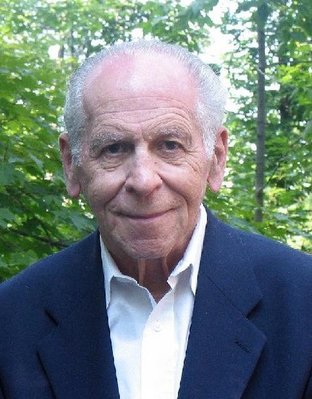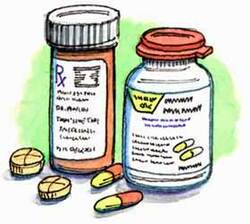
Background: The behaviourist, cognitive and psychodynamic explanations of mental illness
Key Study: Szasz (2011) The myth of mental illness: 50 years later
Strategy: Non-biological treatment of one disorder
Key Study: Szasz (2011) The myth of mental illness: 50 years later
Strategy: Non-biological treatment of one disorder
This topic has background, a Key Study and a strategy to be applied.
Background: Explanations of Mental Illness
The behaviourist explanation of mental illness
The cognitive explanation of mental illness
The psychodynamic explanation of mental illness
Key Study: Szasz (2011) The myth of mental illness: 50 years later.
Evaluation points
Strategy: Non-biological treatment of OCD = CBT
Background: Explanations of Mental Illness
The behaviourist explanation of mental illness
- Classical conditioning
- Operant conditioning
- Social Learning theory (A.R.R.M.)
- Not all behaviour is learnt (e.g. hallucinations in Sz)
The cognitive explanation of mental illness
- A-B-C model
- Cognitive triad
- Cognitive biases
- Research relies on self-reports
The psychodynamic explanation of mental illness
- Tripartite personality
- 5 Psychosexual stages
- Overuse of the ego defence mechanisms (e.g. catastrophizing)
- Explanatory power
- Psychology as a science
Key Study: Szasz (2011) The myth of mental illness: 50 years later.
Evaluation points
- Psychology as a science
- Free will v determinism
- Ethics
- Reliability of diagnosis
- Nature v nurture
Strategy: Non-biological treatment of OCD = CBT
- Maladaptive cognitions are disputed & replaced with rational thoughts.
- Thought record used
- 4 Rs – Relabel, Reattribute, Refocus , Revalue the intrusive thought.
- Outcome study Jones & Menzies (1998) 20% reduction in symptoms over 8 sessions
- “hello-goodbye effect”
- Effectiveness issue – lack of long term recovery
- Patients rely on therapist for the challenging meta-cognitive aspects of CT
- Appropriateness issue - only partially curative.

|
|
| ||||||||||||||||||
 Thomas Szasz
Thomas Szasz
Szasz - The Myth of Mental Illness: 50 Years Later
Szasz suggested that mental diseases were in fact behaviours that made people feel uncomfortable, and, consequently, were thought by society to need treating, to make other people feel better rather than to help the person displaying the behaviours.
He believed that people with mental illnesses should not be treated in the medical sense. This essay aimed to look at his initial research on mental illness in the 1960’s and then reconsider his points.
Szasz suggested that mental diseases were in fact behaviours that made people feel uncomfortable, and, consequently, were thought by society to need treating, to make other people feel better rather than to help the person displaying the behaviours.
He believed that people with mental illnesses should not be treated in the medical sense. This essay aimed to look at his initial research on mental illness in the 1960’s and then reconsider his points.

1960s:
- Health care for mental health consisted of mental hospitals and private professionals
- Mental patients are treated no better than prisoners. Patients have few rights – e.g. held against their will
- Mental illness is not the same as physical illness
- Mental illness doesn’t exist, so it is foolish to look for causes or cures

Reconsiderations in 2010:
- All mental health care is provided by the NHS and the aim is to prevent danger to patients and others
- A false belief that is seen in research is that mental illness can be diagnosed accurately and treated successfully
- Mental illness is seen as being a disorder of the brain, despite there being no scientific evidence that it is caused ONLY by the brain
- Mental disorders are labels given to undesirable behaviours
- Doctors don’t see people as inherently bad, but if they perform negative behaviours, it is a result of their mental illness
- Consent for treating mental illness does not happen
- Medical treatments should not be used to treat mental illness. People need to be helped to overcome obstacles and treated with respect.

The key points in Szasz’s argument
- Mental illness is a myth, not a disease that can be scientifically proven.
- Medical model is now the only way of dealing with people who behave differently.
- Government decides what illnesses exist, control all regulation and funding.
- Mental hospitals are more like prisons to control peoples’ behaviour.
- Economic issues – big business in pharmaceuticals and treatments to treat mentally ill.
- Mentally ill people are actively trying to cope in the world using whatever coping mechanisms they can. They are not passive players to biological forces.
- People are being deprived of the freedom to behave in the way they choose on the grounds of having a disease. This also has implications for ‘insanity’ as a defence.
- We need to try to understand the reasons for a person’s actions by respecting, understanding and helping them, not diagnosing under a loose fitting definition

Reasons Szasz gives that the medical model is unacceptable
- The causes of mental illness: there is no identifiable cause like an infection, or nutritional deficiency. It is a way of coping. It is a mistake to keep looking for biological causes.
- No alternative legal approach – government has become involved. Mental illness is not based on scientific research
- It denies people freedom and responsibility to choose how to behave. They are coerced and forced into diagnosis and treatment. This is unethical.
- Diagnosis is subjective, not based on scientific assessment. Mental illness is judging the ‘bad’ behaviour of people.
- Medical model is dehumanising, ignores suffering of person. Labels are constructed due to medicalisation of disturbed behaviour.
- Medical model has replaced religious view of mental suffering.
- Alternative ways – understanding the patient, help them help themselves. Medical treatments do not work, only supress symptoms.
